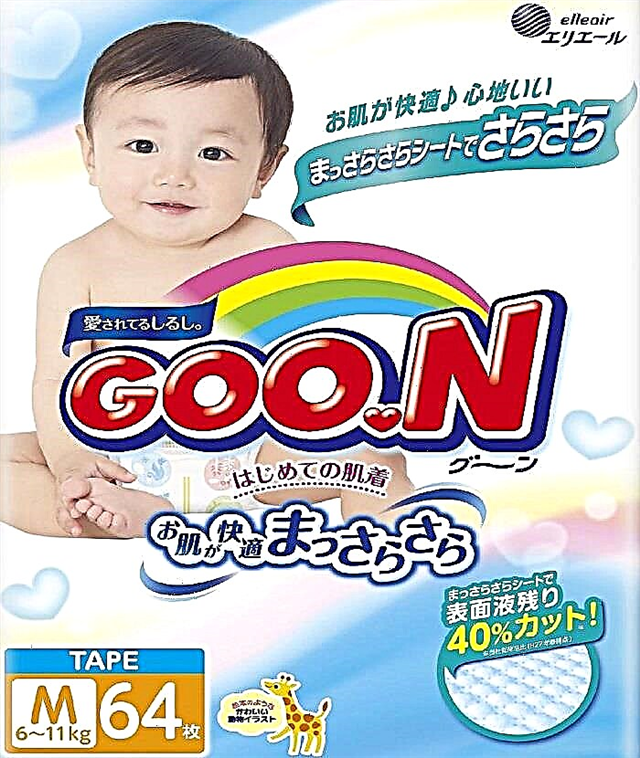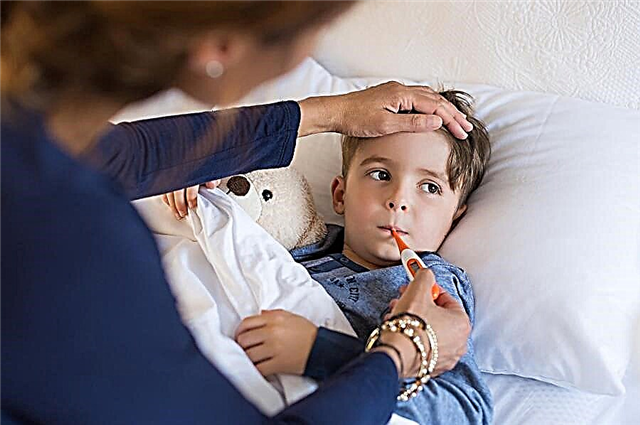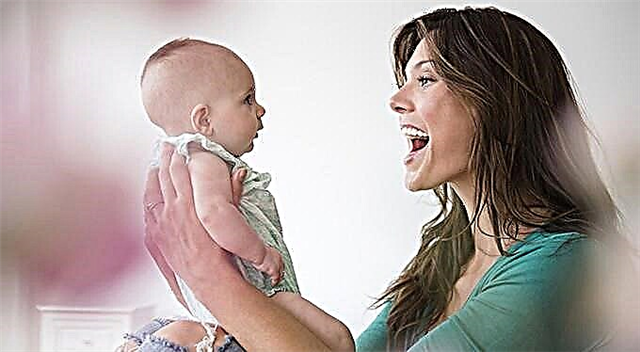Falling asleep or waking up, the little one rubs his eyes with his fists, it looks touching. There are other situations, independent of sleep, when the child scratches his eyes. The reasons here can be both harmless and requiring attention. Sometimes the desire to scratch your eyes is triggered by itching, which is a symptom of the disease.

Eyes itch
Why does the child rub his eyes
Children are more likely to have eye problems than adults. This is due to the imperfection of the immune system, which is not able to withstand certain factors:
- The most harmless reason babies rub their eyes is fatigue. During wakefulness, the optic nerves are in tension, from which the eyelids begin to gradually lower. To stretch the muscles around the eyes, the baby uses fists. If at the same time the child yawns, he is overcome by sleep.
- Another reason why a child scratches his eyes is irritation caused by a third-party object. It can be an eyelash, hair, speck, street dust, etc. They cause discomfort and make the baby reach out to his eyes.
- Incorrectly selected detergents, hygiene products, plant pollen, a number of products provoke allergic reactions. In this case, not only the eyes will itch - the child may have a stuffy nose.

Allergic itching
- Insufficiently humid air, high body temperature, prolonged wakefulness and a number of other factors provoke dry eye syndrome. Therefore, when a child rubs his eyes, the reasons should be sought in the drying of the protective film. Rubbing the eyelet increases lacrimation, which helps moisturize the cornea.
- Constant itching, supplemented by redness, discharge, is evidence of an infectious inflammation that has affected the conjunctiva. The disease is accompanied by swollen eyelids, redness of the eyeball, and fever.
Sometimes the cause of itching of the eyes can be helminthic invasions that have penetrated with blood into the conjunctival region or settled behind the lower eyelid.
When not to worry
If the newborn lightly rubs his eyes, showing signs of fatigue, this is normal physiological manipulation. In this case, there is no reason to worry, it is enough to put the baby to bed.
There is no particular reason to worry when the factors provoking irritation are easily eliminated. It is enough to remove from everyday life products and products that cause allergies, humidify the air in the room, and the baby's eyes will stop itching.
Warning signs
If a child often rubs his eyes, while constantly being capricious, crying, this is already a reason to show him to the doctor. It's not just a speck or infection that can cause concern. Itchy eyes are caused by inflammation of the middle ear or sinuses, as well as abnormalities in the endocrine system.

Inflammation of the conjunctiva
Fever, fever, redness and swelling of the eyelids, severe lacrimation and the presence of pus are signs that require an immediate response.
Komarovsky on constant eye rubbing
The discomfort makes the baby scratch his eyes. The more often this happens, the greater the risk of corneal injury. Dr. Komarovsky recommends that mothers distract the baby from the process, even if the child is simply tired.
When the baby begins to yawn, you can pick it up and shake it a little. This will help the child calm down. As soon as the baby starts to wake up, here mom will make sure that he does not pull his fists to his eyes.
It is more difficult when irritation is caused by a foreign body, worms, inflammation. In this case, the itching can be so severe that the infant rubs the eyes until red. If there are motes there, then by mechanical movements the crumb is able to comb and injure the cornea. This will become another factor for the development of the inflammatory process.
What is the danger of itching in the eyes, nose
If the toddler not only rubs his eyes, but he also has a stuffy nose, this is an alarming situation. Allergic rhinitis can also appear in the first month of a child's life. Not all parents are able to immediately recognize the problem, so the baby is first treated for ARVI.
When a child's eyes itch due to allergies, all the mucous membranes swell. Therefore, the process involves the sinuses and the upper region of the larynx. Increased rubbing of the eyelids provokes profuse tears. Some of the fluid flows out through the sinuses, which are already clogged. All this makes breathing difficult and can provoke asthmatic syndrome.
Conjunctivitis is often allergic in nature and manifests itself as a severe burning sensation in the eyes. The child has to constantly scratch the eyelids, which leads to damage to the mucous membrane. As a result of a violation of the protective film, the conjunctiva becomes infected, the hair follicles become inflamed.

Advanced inflammation
Note! If purulent discharge appears in the corners of the eyes, we can talk about a neglected infection, which was not paid attention to in a timely manner. In severe cases, the problem can develop into uevitis, blepharitis, and even loss of vision.
Eye irritation symptoms
To understand the reasons why a child's eyes itch, you need to pay attention to the following points:
- how often the child does it, what kind of effort he makes;
- is it related to sleep or not;
- whether it is accompanied by other symptoms.
If itching in the eyes is not caused by muscle overstrain, then any irritation is necessarily accompanied by additional signs. Their combination will help determine what exactly makes the toddler pull their hands to their eyes.
Typical symptoms
| Possible reasons | Signs of irritation accompanying itching |
|---|---|
| Foreign body | The presence of a third-party object in the eye is indicated by: • profuse lacrimation; • frequent blinking; • mucus in the corner of the eye |
| Infection | The child's eye not only itches, but also hurts. Therefore, the little one is overly capricious and will cry all the time. The following symptoms are added to the itching: • red, swollen eyelids; • profuse tears; • the presence of pus; • fever |

A speck got into the eye
If irritation of the eye mucosa is caused by ophthalmic problems, diseases of the endocrine, digestive or nervous systems, other symptoms may appear:
- bright circles around the objects in question;
- double vision or blurred eyes;
- "Blind" areas of the review.
It is unrealistic to notice these signs from the outside, and a little man for up to a year will not be able to tell about them. Therefore, in order to avoid serious problems, the toddler should be shown to a specialist at the first sign of eye irritation.
When to take action
If your baby is scratching his eyes while feeding or after a walk, it's time to put him to bed. In all other cases, it is necessary to find out the cause of the itching and try to eliminate it.
Selection of eye drops, ointments, antihistamines and other medical treatment is the prerogative of the doctor. Households can only provide all possible help before contacting a specialist:
- It is advisable to remove the speck that got into the eye immediately. To do this, the mother takes the following actions:
- first washes his hands;
- then washes the child's face;
- typing warm boiled water into a pipette, rinses the eyes of the toddler;
- taking a sterile napkin or cotton swab, with its help removes a foreign body.

How the eye is processed
Important! If an object that has fallen into a child's eye is inaccessible, you should not make an effort to remove it. In this case, it is better to seek help from a specialist.
- Measures should be taken immediately when the baby has a crust in the corners of the eyelids. It is removed with a sterile damp cotton swab.
- With dry eye syndrome, the air in the room is humidified using a special apparatus or by installing containers with water in the room. The child is provided with a plentiful drink, and the eyes are washed with a decoction of chamomile.
- A compress from tea bags helps to relieve irritation.
If it is difficult to protect the baby's actions, and he continues to pull his hands to the eyelids, it is advisable to put on mittens on the fists. So the child will not be able to injure the eyes with marigolds and will not introduce an infection into them.
The first steps that a mother should take to relieve itching in the baby's eyes are not a reason to continue to self-medicate. Having provided the little one with all possible help, they immediately go with him to the doctor or call the local pediatrician at home when the crumbs have a feverish state.
Prevention methods
Children are not immune to inflammation of the conjunctiva or speck in the eye. Parents will be able to reduce the risk of severe irritation of the cornea and mucous membranes if they adhere to a number of rules:
- make sure that the little one does not climb into the eyes with dirty hands;
- regularly observe hygiene;

Hygiene of newborns
- adhere to a regime of wakefulness and sleep;
- try to protect the baby from contemplation of a working TV (monitor);
- find ways to protect the eyes of the toddler from dust, debris during walks;
- select children's cosmetics and hygiene products, taking into account the sensitivity of the body;
- responsibly treat the diet of a nursing mother and the choice of products introduced into the baby's menu;
- protect the baby's contact with animals, from which the child can become infected with worms;
- promptly treat colds so that rhinitis does not lead to inflammation of the eye mucosa;
- maintain the air humidity in the room where the baby is at the optimum level.
Important! The main measure for the prevention of eye problems is regular examinations of children by specialists (pediatrician, neuropathologist, ophthalmologist, allergist).
Careful attention to the health of the baby will help to avoid the discomfort caused by itchy eyes. If the problem appears, you should not fix it yourself. It is better to immediately show the little one to a specialist who will make the correct diagnosis and select the appropriate therapy for the case.



